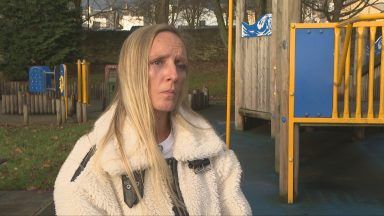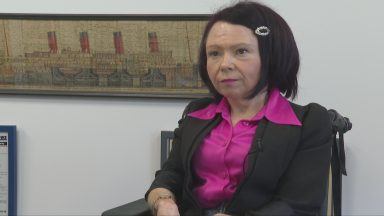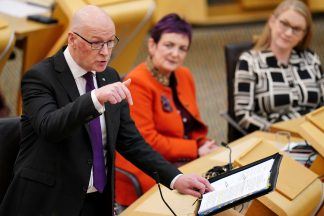Ministers have given a body set up in the wake of the NHS infected blood scandal the power to start making compensation payments to patients.
The Cabinet Office published a lengthy policy paper on Friday including details on criteria which must be met for the first payouts.
The paper confirmed the Government expects the Infected Blood Compensation Authority (IBCA) to begin making payments by the end of 2024.
Payments to affected persons, including spouses, civil partners and long-term cohabitants of victims signed up for compensation, will begin in 2025.
The regulations set out patients or their representatives can receive compensation if they satisfy the IBCA they contracted hepatitis C, chronic hepatitis B, or HIV as a result of NHS or armed forces’ infected blood.
Paymaster General Nick Thomas-Symonds said he was “incredibly proud” to have signed the documents, which empower the IBCA to start awarding payments to victims.
Susan Lee, of The Hepatitis C Trust has welcomed the news, but warned of differing compensation depending on which disease a patient ended up contracting.
“We are still examining the information released today and awaiting further detail, but remain concerned by the disparities in proposed compensation for people who were given hepatitis C, hepatitis B and HIV,” she said.
“It is vital that the Government does not underestimate the catastrophic and wide-ranging impacts that hepatitis can have on people’s lives.”
More than 30,000 people who received NHS treatment between the 1970s and early 1990s were infected with contaminated blood, and contracted viruses.
Subscribe free to our weekly newsletter for exclusive and original coverage from ITV News. Direct to your inbox every Friday morning.
If patients received infected blood treatment and a diagnosis of hepatitis C between January 1 1952 and September 1 1991, chronic hepatitis B between January 1 1952 and December 1 1972, or HIV between January 1 1982 and November 1 1985, they “will be eligible for compensation on the basis that treatment during those dates is more likely to have resulted in transmission”.
There is no cut-off date for eligibility for compensation around when a person became infected.
However, evidence requirements will be higher for people infected after screening was introduced for the conditions in 1972, 1985 and 1991 respectively.
Payouts may also apply to people who contracted diseases from a victim through sexual contact in a long-term relationship, birth, or accidental needle stick injuries, but not if a patient contracted them through sharing needles while taking drugs.
According to an explainer, patients may choose to take compensation as a lump sum or in instalments over five, 10 or 25 years, with future payments uprated in line with inflation.
The Government would pay a lump sum to personal representatives of eligible infected patients, if they die before receiving their full entitlement.
The overall payment will be made up of a series of awards, including an injury impact award which “compensates for past and future physical and mental injury and emotional distress and injury to feelings”, a social impact award for stigma and social isolation, and the autonomy award which takes into account how infected blood may have affected patients’ private and family life.
The Government has also confirmed financial loss and care cost compensation awards.
Some patients may face deductions, for example, if they received compensation awards made by a court or tribunal.
The Cabinet Office’s policy paper reads: “The Government hopes that the scheme will enable victims of infected blood to receive due compensation without the need to go through a court or tribunal process to seek redress.”
Have you heard our new podcast Talking Politics? Tom, Robert and Anushka dig into the biggest issues dominating the political agenda in every episode…
Follow STV News on WhatsApp
Scan the QR code on your mobile device for all the latest news from around the country





























